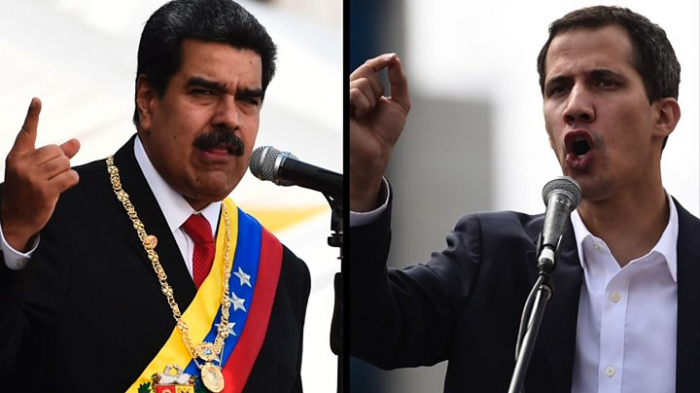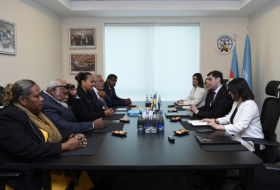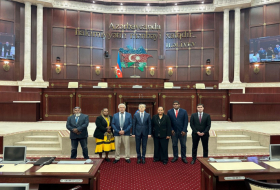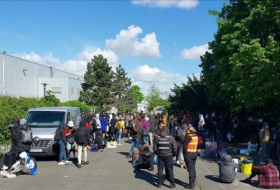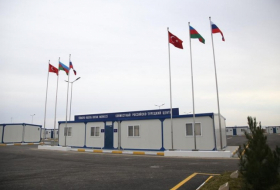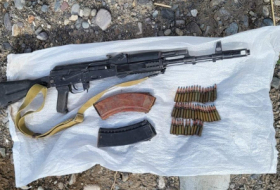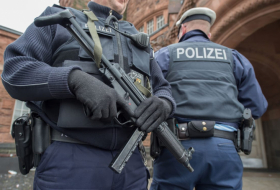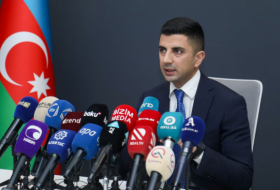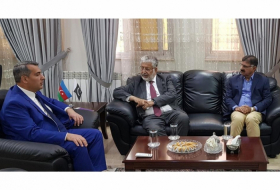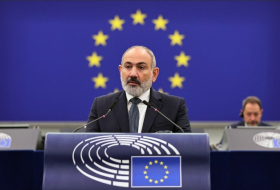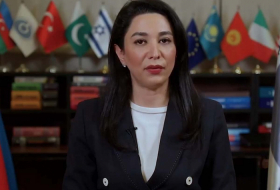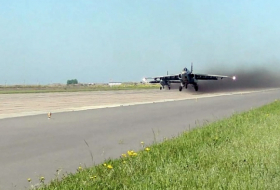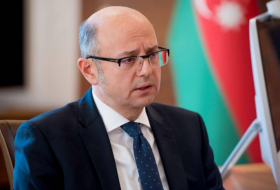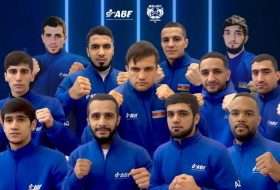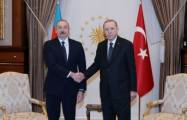The comments come one day after Mr Maduro cut diplomatic ties with the US.
He was angry after they recognised an opposition figure, Juan Guaidó, as interim president on Wednesday.
Mr Bolton told reporters outside the White House the issue was "complicated" but they were working on a plan to funnel funds to Mr Guaidó instead.
Figures from the Trump administration are continuing to try and compound pressure on Mr Maduro as the international community remains divided in its support of him.
Russia has condemned foreign powers for backing Mr Guaidó, saying the move violated international law and was a "direct path to bloodshed".
Mike Pompeo, the US Secretary of State, has now requested a UN Security Council meeting be held on the issue on Saturday.
At a meeting of the Organisation of American States (OAS) on Thursday he described Mr Maduro's government as "morally bankrupt" and "undemocratic to the core".
President Trump has said that "all options are on the table" in response to the unrest.
Large protests were organised against, and some in support of, Mr Maduro on Wednesday.
At one demonstration in Caracas, Mr Guaidó, Venezuela's National Assembly leader, declared himself as the country's interim leader.
He said articles within the country's constitution allow him to assume interim power because he believed Mr Maduro's election, and therefore presidency, was invalid.
He has vowed to lead a transitional government and hold free elections.
Within minutes of his declaration, Mr Trump recognised Mr Guaidó as the country's legitimate head of state. A number of South American nations, as well as Canada and the UK, have now followed suit.
The government of Mr Maduro, who has maintained the military's support, described Mr Guaidó's actions as an attempted coup.
Mr Maduro has labelled the US comments a "big provocation" and broken off diplomatic relations.
On Thursday, he ordered the closure of Venezuela's embassy and consulates in the US.
The US state department meanwhile has ordered non-essential staff to leave Venezuela.
Mr Maduro's sovereignty has been backed by China and Russia, who both have strategic interests in his country's economy.
Others, including Mexico and Turkey, have also stood by Mr Maduro.
A Caracas-based NGO, the Observatory of Social Conflict, says that at least 26 people have been killed in demonstrations so far this week.
Mr Maduro has led the country since 2013 and was sworn in for a second term earlier this month. His re-election in May 2018 was marred by an opposition boycott and vote-rigging claims.
The president has faced ongoing criticism international and internal opposition for his human rights record and handling of the economy.
Despite having the world's largest proven oil reserves, Venezuela's economy has been in a state of collapse for several years.
Its industry has suffered mismanagement and oil revenue has dropped significantly.
Endemic hyperinflation and shortages of necessities like food and medicine have hit the population hard and caused millions of Venezuelans to flee.
Strategic partners including China and Russia have invested deeply the country's economy - ploughing billions into trade deals and loans to the help its ailing economy.
Moscow sees Venezuela as one of its closest allies in the region and has sharply rebuked US comments about Mr Guaidó's claim.
More about: US John-Bolton Venezuela Nicolas-Maduro








